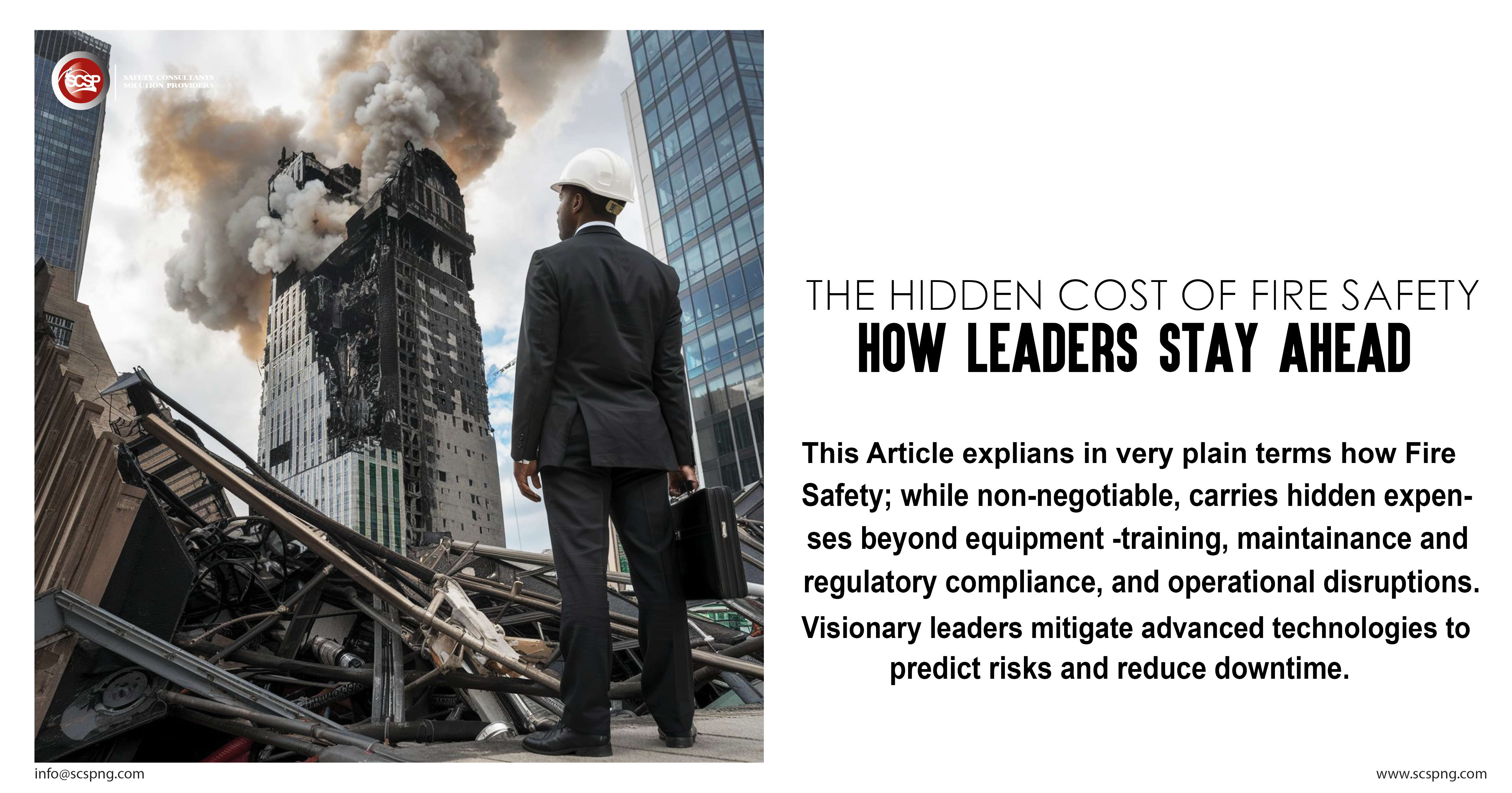FIRE OUTBREAK IN NIGERIA: A REVIEW
Fire is generally agreed to be beneficial to humanity but becomes an enemy when its presence is not requested. Almost on a daily basis, fire outbreaks are reported in states across the federation in Nigeria. From one point to another, it’s been gory tales of fire outbreaks ravaging Nigeria. Sadly, many cases are unreported. The ravaging impact of inferno in the country constitute to trillions of Naira with many lives lost. Unarguably, fire outbreak constitutes a barrier to economic advancement of any country. The rising frequency of fire disaster in Nigeria has raised questions on its sources and corresponding efforts to curtail it. it is therefore pertinent that coordinated approach to mitigating fire outbreak in the country is urgently enforced.
OVERVIEW OF FIRE INCIDENTS IN NIGERIA
The occurrence of fire disasters is not a new phenomenon in Nigeria owing to the fact earlier in the introduction that fire outbreaks occur almost on a daily basis in Nigeria. In December 2010, fire razed a shopping complex in Nigeria state destroying many shops and goods. In April 2015, fire broke out at the Federal Mortgage Bank in Marina Lagos destroying offices and administrative facilities. Though the fire was subsequently put out, it paralysed administrative and economic activities. In September 2019, Unity Bank Headquarters in Lagos suffered a major fire outbreak. In April 2019, a 45MVA transformer at the transmission substation in Apo Abuja was destroyed by fire out break at the transmission station. In August 2019. a fire incident in Abagbo village Takwa Bay killed 5 children of the same family. In July 2020, the account unit of Bayero University Kano was engulfed by fire. These amongst the numerous daily fire occurrences in the country have heightened the disturbing outbreaks of fire in the country.
CAUSES OF FIRE OUTBREAK IN NIGERIA
A lot of reasons have been attributed to be factors behind the increasing cases of fire in Nigeria. The increase in fire disasters in Nigeria is worrisome. Notably, fire disasters are not pleasing incidences in any manner. In Nigeria, carelessness has been identified as the major cause of fire outbreak. This usually comes in the form of indiscriminate petrol storage, careless disposal of cigarette stubs, illegal electric connection and so on. A recent report by the safety initiative group pointed out that 48% of fire incidences in Nigeria are caused by human errors. Also, population influx and urbanisation without commensurate public infrastructure management is another have added to another cause of fire outbreak in the country. Today fast-growing cities are opening up to satellite towns with proper town planning. This usually brings translate to a big risk in the wake of a fire. Also on this fact is the nonchalant attitude of government and designated agencies at all levels in addressing and responding to fire incidences.
IMPACT OF FIRE OUTBREAK IN NIGERIA
The long term economic and social impact of fire disasters is difficult to estimate. The World Life Expectancy Report of 2016 ranked Nigeria first in the number of deaths by fire. In 2017, Kano state recorded about 660 fire incidents with about 123 lives lost. A recent report from the Federal Fire Service reveals that public assets worth N3 trillion were lost to about 2, 835 fire
incidents in 2021. In 2021, it was revealed that about 136 people died from a major fire incident in two states alone of the
federation. In March 2021, goods worth over N300 million were destroyed as fire razed the Katsina central market. The Fire
Disaster Prevention and Safety Awareness Association of Nigeria explains that fire incidents in the country cost the national economy about N6trillion between 2012 – 2017. In June 2012, a midnight fire outbreak was reported at katarko market in Jos, consuming over 50 timber shades and workshops. In April 2022, over 100 people were burnt beyond recognition at an illegal bunkering site in Imo state. No doubt, the impact of fire disaster in the country continues to have toil on both human and natural resources.
CHALLENGES AFFECTING FIRE OUTBREAK RESPONSE IN NIGERIA
Across the world, some impediments are prevalent in addressing fire disasters. In Nigeria, a few of these obstacles have been highlighted below
INADEQUATE WORKFORCE: The rising daily case of fire incidents in the country is evidently overwhelming the current workforces who are busy attending to the many disastrous fire cases. This poses a great challenge to addressing fire as they sometimes split of attend to fire cases in batches or sections.
PEOPLE: At the scene of fire disasters the massive crowd even on the way constitutes a big barrier to fire fighters attending to fire incidents. More so, the attitude of people is disrupting, trying to forcefully work outside the directives of fire fighters is another major challenge in fire prevention in the country.
TOUTS/HOODLUMS: Recently, there have been reported cases of hoodlums attacking fire fighters and vandalising their equipment. This trend is gradually gaining momentum in some states and has already instilled fear and panic about the safety of officers and equipment in responding to fire situations.
GOVERNMENT POLICIES: Some old bottle neck administrative policies in prompt response and even in the procurement of vital equipment s for the smooth running of firefighting efficiency from government agencies have constituted to another serious challenge in fire prevention in the country.
WHAT HAS BEEN DONE
The Nigerian Government authorities must be commended for their passionate and selfless service in addressing fire disaster over the years. Even with a general call to do more, the efforts so far is appreciable.
TRAINING/ RE –TRAINING: Recently, the Federal Fire Service sent out 17 of its firefighting officers to
Belarus for advance trainers training course. Also there has been professional training course for officers with
different safety agencies within the country to boost efficiency.
RENOVATION: Within this year, the Federal government embarked on the renovation of 16 fire service stations and the
construction of additional 5 new fire stations to boost prompt response and relieve existing ones of undue pressure.
UPGRADE: the approval for the procurement and upgrade of equipment comprising of 44 firefighting engines, 15 water tankers, 15 rapid intervention engines and 20 basic life support ambulances with additional aerial platform firefighting truck.
MASSIVE AWARENESS: the federal fire service in conjunction with NEMA and national orientation agency have partnered in fire education and campaign especially during dry season to sensitise and educate the masses on fire prevention techniques.
RECOMMENDATIONS
ALTERNATIVE ROUTES: As a matter of public safety, there should be diversion or creation of alternative routes for petroleum tankers or other heavy-duty trucks that have sources of ignition out of congested places to avoid spills or explosions.
ENFORCEMENT OF FIRE SAFETY REGULATION: in our context, there should be review of enforcement of building and safety codes and fire prevention legislation to mitigate occurrence of fire in public and private buildings.
PUBLIC EDUCATION: Both the Federal Fire Service and disaster management agencies should embark and intensify cogent educational campaign among residents and at various work places.
CONCLUSION
Fire prevention is our collective bargain for a sound and prosperous Nigeria. As such, it is imperative that all stakeholders come together to urgently address and enforce standards and legislations that will curb and mitigate fire outbreak in the country.
Further Reading
Federal Fire Service Report 2019, Basic Fire and Prevention Guide
World Fire Statistics Report (WFSR) “List of Fire Outbreak from 77 Countries” Vol. 9. 345 – 450, (2010)
News Watch: A Comparison of Lagos Death caused by Fire 2017
National Emergency Management Agency (NEMA) 2014 Report, Annual Fatal Fire Statistics, Vol. 5, 211-230 (2014)
National Security and Civil Defence Corps 2015; “Fire Outbreak in Buildings and Non-Buildings, Vol. 3, 124 – 160 (2015)









